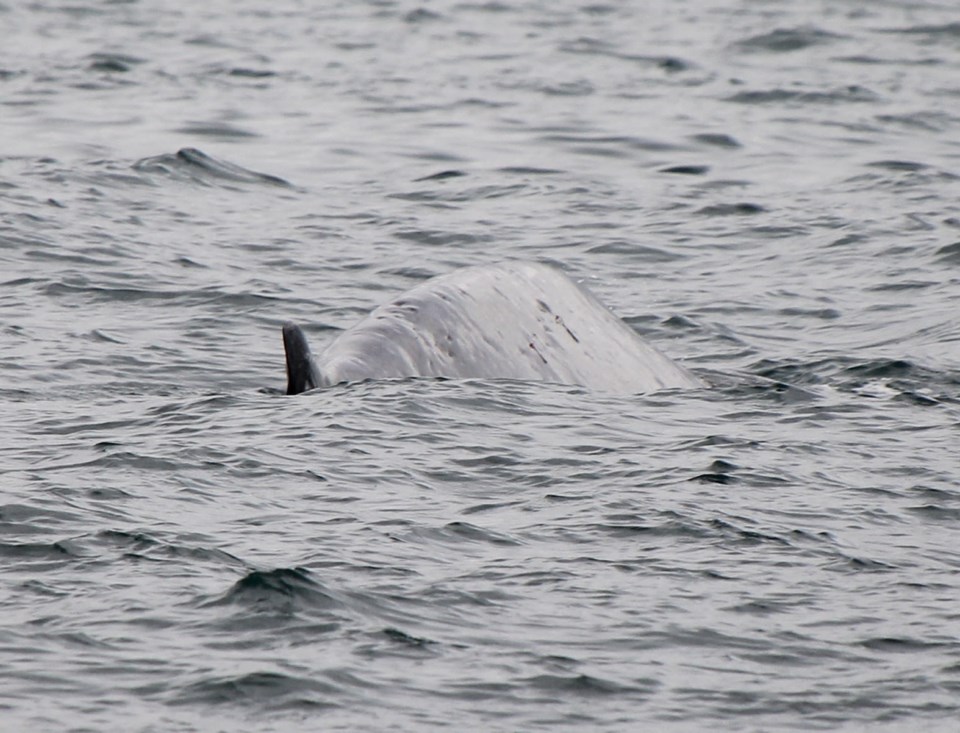A rare sighting of the world’s second-largest whale in north Puget Sound makes marine experts hopeful for a recolonization on the West Coast.
A fin whale was spotted and photographed Thursday morning south of Minor Island, near Whidbey Island, about 50 kilometres east of Victoria. The sighting was made by naturalists aboard the Chilkat Express, part of a Seattle-area whale-watching fleet.
It appeared to be a young fin whale, healthy but on the thin side, according to Jonathan Stern, a marine biology professor at San Francisco State University.
The fin whale is the second largest creature on Earth, after the blue whale. They can grow to 26 metres in length, weigh 70 tonnes and live up to 90 years.
Fin whales were common in the Salish Sea until commercial hunting in the last century eradicated the population.
The animals have been spotted in the area around Puget Sound and Vancouver Island only a few times in the past 20 years, said Michael Harris, managing director of Puget Sound Express whale-watching.
Harris said the “extremely rare sighting” makes him and other naturalists hopeful fin whales will return to the region.
“There’s always that pioneer, that first one in. … It’s our hope this is a harbinger of more fin whales coming in and recolonizing the area,” he said.
Other whale species such as the humpback and the grey have become more common on the west coast of Washington state and B.C. in recent decades, Harris said. These resurgences followed single whale sightings.
The fin whale’s appearance may be related to climate change. Unusually warm weather this summer led to an algae bloom stretching from California to British Columbia, leading to a situation where food for the whales is “not plentiful,” Harris said. It’s possible the fin whale could be swimming further afield in search of fish.



